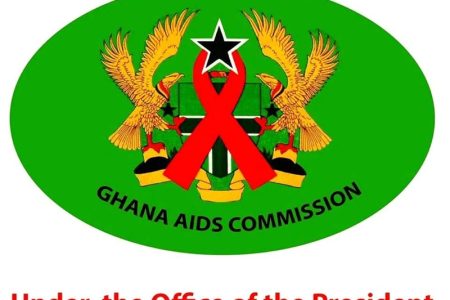The Director General of the Ghana AIDS Commission (GAC), Dr. Prosper Akanbong, has raised an alarm over the emergence of new HIV infections in illegal mining areas, known locally as “galamsey” zones, particularly in the Upper West Region.
He has called for urgent and coordinated intervention to prevent a potential surge in HIV cases in these high-risk environments.
Speaking in Wa during a stakeholder engagement as part of his working visit to the region, Dr. Akanbong expressed deep concern that illegal mining activities, which are rapidly expanding due to newly discovered gold deposits, are becoming hotspots for new HIV infections.
Illegal mining fueling HIV spread
“We are beginning to see pockets of new infections that are coming up in the region, especially in the newly emerging areas where gold has been found, and they are doing galamsey activities,” Dr. Akanbong disclosed.
The GAC Director General attributed the worrying trend to widespread drug and alcohol abuse, unprotected sex, and other risky lifestyles that often accompany illegal mining activities.
He warned that if the current trend is left unchecked, it could undermine the progress Ghana has made in reducing the national HIV infection rate.
“Galamsey zones are not just environmental threats, but now public health hazards as well,” Dr. Akanbong stated.
Expanding HIV services to high-risk zones
To combat the rise in infections, Dr. Akanbong announced that the Ghana AIDS Commission is intensifying its interventions in galamsey-affected communities.
These include the distribution of condoms, public sensitisation efforts, and outreach programs to ensure that individuals who test positive for HIV are promptly enrolled on Antiretroviral Treatment (ART).
The Commission is also considering integrating HIV self-test kits into workplace policies, a move intended to make it easier for workers—especially those in high-risk sectors—to test themselves regularly and discreetly.
“We must meet the people where they are. If galamsey areas are where the risk is highest, then our services must go there too,” Dr. Akanbong insisted.
Hope amid rising concerns
Despite the troubling news from the illegal mining zones, Dr. Akanbong praised the Upper West Region for making commendable progress in reducing HIV prevalence.
He hinted that the yet-to-be-released 2024 report will reflect significant reductions in new infections due to the region’s coordinated approach to prevention and treatment.
He expressed optimism that the Upper West Region could soon serve as a national model for HIV response, if the current momentum is sustained and enhanced with targeted interventions in vulnerable communities.
Call for stakeholder action
Dr. Akanbong’s visit to the region included a review of the Ghana AIDS Commission’s Technical Coordinating Unit, as well as meetings with the Regional and Municipal Health Directorates. Accompanying him were other high-level officials from the GAC, including Dr. Fred Nana Poku, Director of Technical Services, and Mr. Derick Oppong-Agyare, Deputy Director of Programmes.
Upper West Regional Technical Coordinator of the GAC, Mr. Osei-Bonsu Gyamfi, also appealed for strengthened collaboration among stakeholders to address the threat posed by the new infections.
He urged the public to practice safe sex, know their status, and seek early treatment if diagnosed.
Stakeholders voice support and concern
Representatives from civil society organisations, Ghana Health Service, Ghana Education Service, the National Association of People Living with HIV and AIDS (NAP+ Ghana), and other agencies participated in the stakeholder engagement.
They expressed gratitude for Dr. Akanbong’s visit and pledged renewed commitment to the region’s HIV response agenda.
Many stakeholders echoed the need for targeted HIV campaigns in illegal mining communities, where lawlessness, poor infrastructure, and lack of health education make it difficult to reach at-risk populations.
A wake-up call for national health authorities
The new infections in galamsey zones are not just a regional issue—they represent a critical challenge to Ghana’s national HIV prevention strategy.
With illegal mining activities proliferating across the country, the risk of a broader health crisis looms if interventions are not scaled up.

